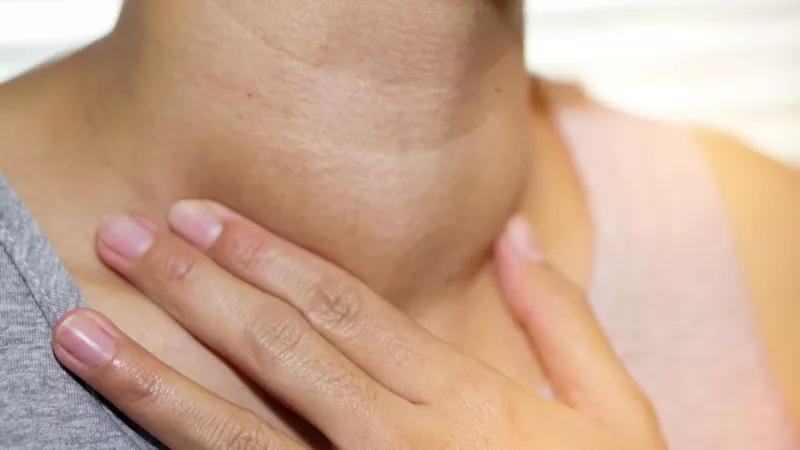VOICE CHANGES
Voice (or vocalization) is the sound that is generated when air is expelled from the lungs and passes over the vocal cords. Vocal cords (medically known as “vocal folds”) are the two folds of tissue inside the larynx (or “voice box”) that snap open and closed when talking, singing or making noises. As air pressure builds up against them, the folds rapidly open and shut, or vibrate, which creates sound.
Your voice is an extremely valuable resource, something you probably rely on every day in your interactions with others. But it’s not something to take for granted. You can damage your vocal cords, leading to temporary or even permanent hoarseness, if you regularly misuse or abuse your voice. Smoking, heavy use of alcohol, insufficient hydration, injuries or trauma to the voice box, inhaled irritants (chemical fumes, smoke or allergens), and disease processes can also cause voice disorders. Problems affecting your voice can negatively impact your relationships, education, career opportunities and self-image.
If you have a voice disorder, your voice may sound strained, weak, choppy, raspy or hoarse. You might have trouble projecting your voice, exhibit uncontrolled changes in pitch, or experience fatigue or tension in your throat while talking. You may even feel a “lump” in your throat when swallowing, or pain when you touch the outside of your neck.

VOICE CHANGES
Voice (or vocalization) is the sound that is generated when air is expelled from the lungs and passes over the vocal cords. Vocal cords (medically known as “vocal folds”) are the two folds of tissue inside the larynx (or “voice box”) that snap open and closed when talking, singing or making noises. As air pressure builds up against them, the folds rapidly open and shut, or vibrate, which creates sound.

SWALLOWING DISORDERS
Swallowing is a life-sustaining process that, thankfully, most of us don’t have to give much thought . It happens so automatically, we rarely have to the think about it! If you did, you’d realize the multitude of steps that go into swallowing and how a small abnormality can derail the whole process. The medical term for difficulty swallowing is dysphagia and it can be a symptom and result of numerous medical disorders.

GERD /ACID REFLUX
Gastroesophageal reflux disease (or GERD) occurs when acid from the stomach backs up into the esophagus. Normally food travels from the mouth, down through the esophagus and into the stomach. A ring of muscle at the bottom of the esophagus, called the lower esophageal sphincter (LES), contracts to keep the acidic contents of the stomach from “refluxing” or coming back up into the esophagus. When you have GERD, the LES does not close properly, allowing acid to move up the esophagus.

CAUSES OF VOICE LOSS
Of course, most people “lose their voice” from time to time. Often it’s a result of period of excessive talking, shouting, singing or other activities which strain the vocal cords. Or, it could be due to an inflammation of the larynx (laryngitis), which has as its root cause a cold, sinusitis or bronchitis. This acute (short-term) form of laryngitis is temporary, and usually lasts from a few days to a couple of weeks.
Larry Haron
Dr. Sinha is one of the finest physicians I've ever met. He gives undivided attention, provides clear explanations, answers questions thoroughly, exudes confidence appropriately, is personable and spends as much time with you as is necessary. He has an excellent...
Katy Miller
I've been going to Dr. Sinha for my sinus needs for a few years now. He is a great doctor that actually takes the time to explain things to me and is friendly and respectful in how he does so....
Henry C.
The most thorough medical exam I have had in years. You and your staff were excellent. Thanks, Doc. Happy Diwali ya!
Narendra S.
Excellent bedside manner! Thorough evaluation and explanation of all steps and kept me comfortable throughout the procedure. High quality staff.
Frank I.
Dr. Sinha is a good physician and I will see him again.
Laryngitis that lasts longer than three weeks is known as chronic laryngitis. It may be caused by habitual over-use of the voice (which is very common with cheerleaders, singers and professional speakers), alcohol abuse, smoking, long-term exposure to chemicals or dusts that irritate the vocal cords, or gastroesophageal reflux disease or GERD (a medical condition where stomach acids flow backward into the esophagus and throat, irritating the vocal cords).
A number of other medical conditions, some of them very serious, can cause voice disorders or changes in vocal quality. These include:

VOCAL CORD LESIONS
Benign, non-cancerous growths on the vocal cords are most often a result of voice misuse or overuse, which causes trauma to the vocal cords. These lesions (commonly nodules, polyps or cysts) alter vocal cord vibration and cause hoarseness. The most common lesions are called vocal nodules or “singer’s nodes.” These nodes are basically “calluses” of the vocal cords. Treatment for vocal cord lesions usually includes rest and/or speech therapy to relieve trauma to the vocal cords. Polyps and cysts are other types of vocal cord lesions; primary treatment is surgical removal.

THROAT CANCER
Throat cancer is a very serious medical condition that requires immediate attention. Symptoms include hoarseness, roughness, raspiness, or other changes in voice quality. There may also be pain when swallowing or tenderness in the neck. Treatment options for throat cancer may include surgery, radiation, and/or chemotherapy. Early diagnosis often results in a good prognosis.

VOCAL CORD PARALYSIS
A common neurological condition that affects the larynx is a paralysis or weakness of one or both vocal cords. A vocal cord can become weakened (paresis) or paralyzed after a viral infection of the throat, following surgery in the neck or cheek region, or for reasons unknown. This can lead to loss of vocal pitch, the inability to speak loudly, hoarseness, and a breathy quality to the voice. If there is paralysis of both vocal cords, you may have speech difficulties, as well as significant problems while breathing and swallowing. Most paralysis will recover on its own, but if it becomes permanent, surgery may be required.

SPASMODIC DYSPHONIA
This is a neurologic condition characterized by abnormal involuntary movements, or spasms, of the vocal cords during speech. The condition can make the voice sound tight, quivery, jerky or breathy. There may also be uncontrolled changes in pitch and loudness. Treatment may include injections of Botox to the vocal cords and speech therapy.

PRESBYLARYNGIS
Presbylaryngis is a condition that is caused by the thinning of the vocal cords due to aging. Because the vocal cords have less bulk than they used to, they no longer meet in the midline to produce “normal” sounds. This can lead to a multitude of voice changes, such as hoarseness, breathiness, decreased volume, pitch breaks, vocal tremors, straining or a loss of singing range. Presbylaryngis can be corrected by an injection of fat or other material into the vocal cords to achieve better closure.
PRESERVING YOUR VOICE
Proper care and use of your voice improves the likelihood of having a healthy voice for your entire lifetime. This involves drinking plenty of water each day to keep your body adequately hydrated (6 to 8 glasses of day is recommended), limiting your intake or alcohol or caffeinated beverages (which can cause the body to lose water and make the larynx and vocal cords dry), not smoking, and avoiding vocally-abusive behaviors such as throat clearing or prolonged yelling, screaming or coughing.
If you do have laryngitis, the best treatment is to drink plenty of fluids, get plenty of rest, and do not use your voice. Acute laryngitis usually clears up on its own within 10 to 14 days. if it takes longer consult your physician.
Chronic laryngitis, or vocal changes or voice loss lasting more than two weeks, warrants a comprehensive medical diagnosis and treatment to prevent further injury or damage to the voice. Many people don’t realize that unexplained or perplexing changes in the voice can be corrected or significantly improved, often with therapy alone, or in some cases with minimally invasive procedures. To schedule an appointment with one of our ENT specialists, please call 404-257-1589. We will do whatever we can to help restore your voice to its optimum health.




